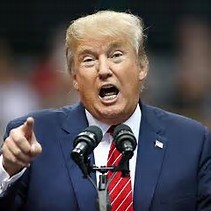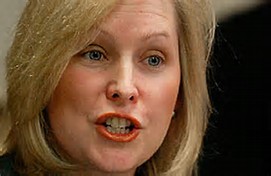The recent repeated showings of DNC Chair Tom Perez referring to the president’s budget as a “shi**y budget, and word that you can order T-shirts that exclaim “Democrats give a sh** about people,” may seem mild today, but profanity seems to be increasing in politics.
(I would) “bomb the sh** out of the Islamic State,” and “Afghanistan is going to hell,“ are a couple of examples of Donald Trump’s campaign language. Some say that Trump made “authenticity” a watchword for his campaign. Many agree that Trump’s plain-spoken language helped him win the presidency. He has since chosen his words more carefully.
Hillary Clinton was known for her extensive use of the “f” word, but primarily in private sessions. When Bernie Sanders recently told a crowd that insurance companies may not like what he would recommend, a man in the audience shouted, “F**k ‘em!” “That’s not exactly the words I would use,” replied Sanders, but added approvingly, “Not bad, Not bad.”
The transcription of President Nixon’s tapes was filled with hundreds of “expletives deleted” notations, and the presidents who followed him were all known to use salty language while in office.
Former Vice President Dick Cheney told Vermont Senator Patrick Leahy to “f**k yourself” on the floor of the Senate, and during the nationally televised signing ceremony of the Affordable Care Act, former Vice President Joe Biden was caught on a live mic referring to it as a “big f**king deal.” A Fox News Poll revealed that 52 percent of registered voters found the remark “not offensive.”
“What people are willing to say in public and what others are willing to hear in public” has changed, according to Mickey Edwards a former Oklahoma congressman and a board member of the National Institute of Civil Discourse.
How our politicians communicate isn’t new. Forty years ago, political scientist Richard Fenno wrote a paper on interacting with constituents, and noted that politicians wanted to give the impression that “I am one of you.”
“Research in linguistics and psychology suggests that conditions are right for politicians to make their home styles a little more profane,” wrote Alex Caton in his piece on profanity in politics. He reported that Michael Adams, an Indiana University English professor and author of In Praise of Profanity, cited that “ordinary people use more profanity in public situations now than they used to.”
Shockingly, Caton, in reference to a 2016 AP/NORC poll, said one in four American adults use the “f” word daily, up from 15 percent 10 years ago. The number using it “several times a day” doubled.
Don’t think that the use of profanity is limited to male politicians. Unfortunately, some women who aspire to higher office believe the old adage, “if you’re gonna compete in the arena with the big boys, you gotta act and talk like the big boys.”
Curious, I read a recent New York Magazine Rebecca Traister profile of New York Senator Kirsten Gillibrand, referenced by Caton. In it, Gillibrand used one “f**k,” two “f**kings,” one “bull s**t, one “p**sed-off,” and one “they suck,” during her interview. All of which wound up in print.
Gillibrand’s use of the “f” word was not always used to make a bold statement, as if that would excuse her. In one instance, she blamed her anxiety over the inauguration of Trump for her fretting over her failure to order Girl Scout cookies. “Oh my God, I’ve got to f**king order those cookies,” she said.
The profile alluded to Gillibrand’s close friendship with Maine’s Republican Senator Susan Collins, causing me to question my naivete as I try tried to imagine Collins’ approving of her friend’s language.
“Edwards disputes that a more permissive environment leads politicians to script profanities,” according to Caton.
It’s up to each of us to let our politicians know what we consider permissible.







